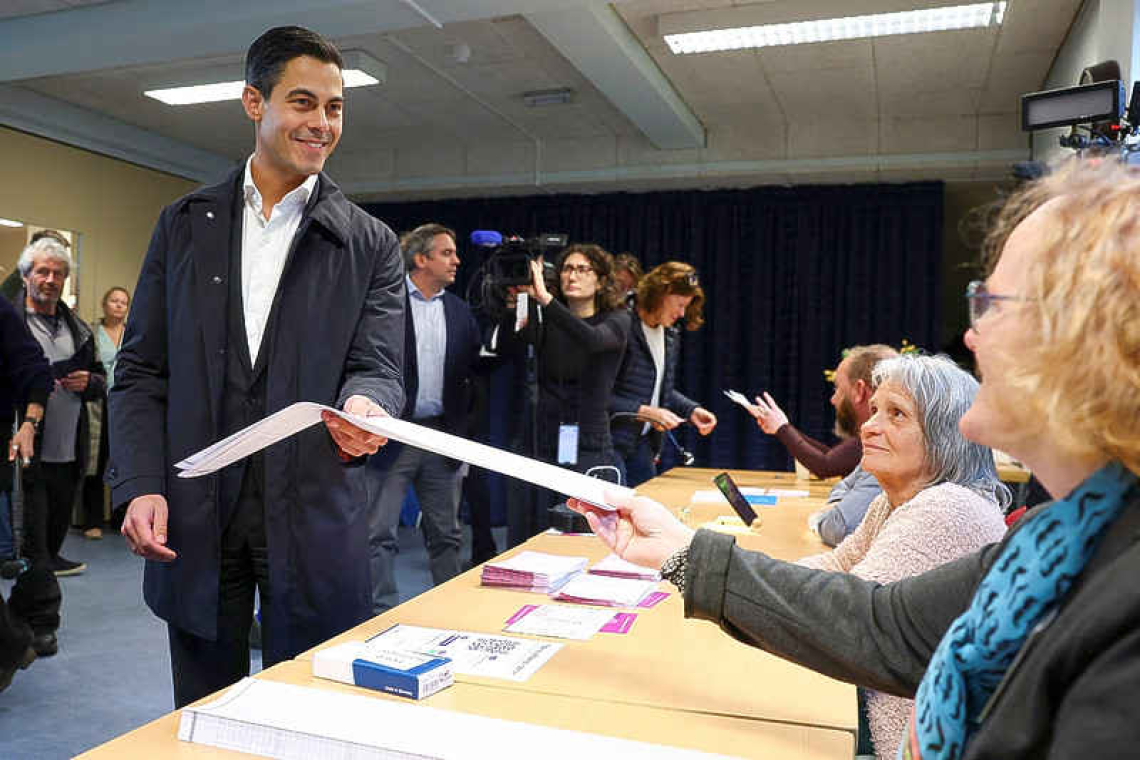Centrist party D66 leader Rob Jetten votes during the Dutch parliamentary election on Wednesday. Photo by Piroschka van de Wouw via Reuters.
THE HAGUE--Centrist party D66 was on course to win the most votes in the Dutch parliamentary election and defeat the far-right, opening a path for its leader Rob Jetten to form a government as the youngest-ever prime minister of the Netherlands.
With half of all votes counted early on Thursday, D66 was projected to win 27 seats in the 150-seat Dutch Second Chamber of Parliament, beating far-right leader Geert Wilders’ PVV party with 25.
Cheers and chants of “Yes, we can” broke out at the D66 election night celebration as the crowd waved Dutch flags.
“We’ve shown not only to the Netherlands, but also to the world that it is possible to beat populist and extreme right movements,” Jetten told the crowd. “Millions of Dutch people today turned a page and said farewell to the politics of negativity, of hate, of endless ‘no, we can’t’.”
The popularity of 38-year-old Jetten surged in the past month, as he campaigned on a promise to resolve a housing shortage, invest in education, and tackle immigration concerns.
Wilders, one of Europe’s longest-serving populist leaders, is known for his anti-Islam stance and lives under constant protection due to death threats. He had proposed denying all asylum requests – which would violate European Union (EU) treaties – sending male Ukrainian refugees back to Ukraine, and halting development aid in order to finance energy and healthcare.
Wilders led his party to a stunning first-place finish in the last election in 2023 and formed an all-conservative coalition, although his partners refused to endorse him as prime minister. He brought the government down in June over its refusal to adopt his hard-line measures.
Speaking to reporters, Wilders said he was disappointed that his party had lost seats and that he probably would not be part of the next government. But he vowed to fight on from the opposition.
“Of course, we would have liked to win more seats and I regret the loss, but it’s not as if we were wiped off the map,” he said.
The Dutch election was seen as a test of whether the far-right can expand its reach or whether it has peaked in parts of Europe. The outcome may suggest there are limits to its enduring appeal.
While the other mainstream parties all pledged toughened anti-immigration stances, the election result, if confirmed, indicates that Wilders’ unwillingness to compromise is also not a recipe for taking and holding power in the Netherlands, with its long tradition of consensus-building.
All mainstream parties remain committed to core international issues such as support for the EU, North Atlantic Treaty Organization (NATO), and Ukraine, including plans to increase military spending.
Reacting to a disappointing outcome for left-wing alliance GroenLinks-PvdA, former EU Commissioner Frans Timmermans stepped down as party leader. The party was projected to drop to 20 seats, down from 25 seats in 2023.
With 76 seats needed to form a governing coalition in the Dutch parliament, at least four parties will be required. One scenario is a pact including D66, GroenLinks-PvdA, centre-right party CDA, and right-wing party VVD.
However, building stable coalitions is tough and talks are expected to take months.







